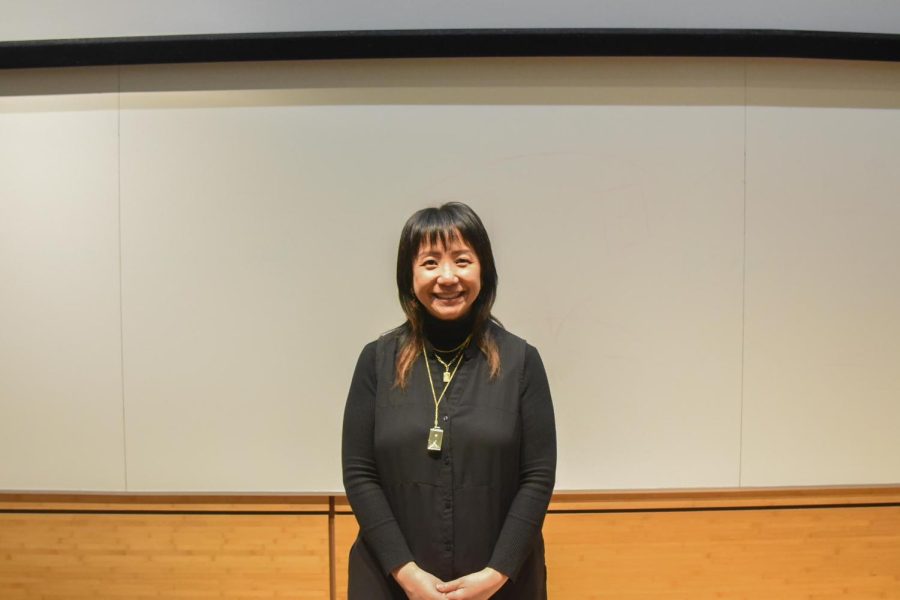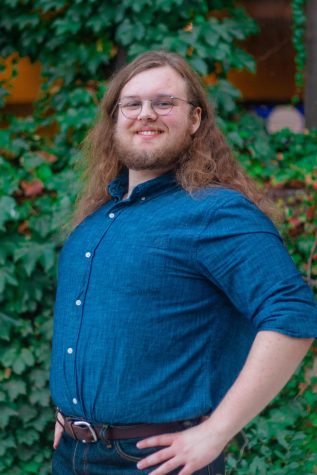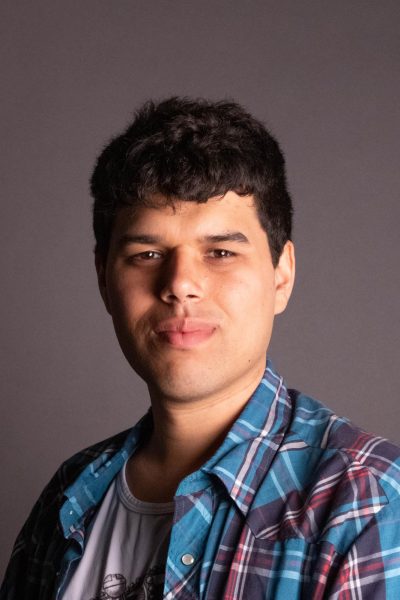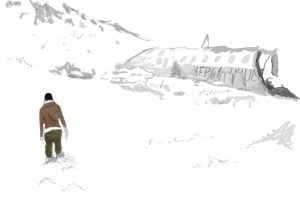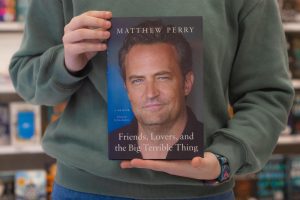Expanding Perspectives Series speaker talks about cultural power of art
Kathy Mouacheupao visited Winona State University on April 5 to present at their Expanding Perspectives Speaker series. Mouacheupao spoke on her experieces growing up in Saint Paul, which is home to the highest population of Hmong people in the United States. As the child of refugees, she lived in an in-between state of Hmong culture and American culture.
April 12, 2023
While many believe that art is solely used for the purpose of entertainment, it can also be used as a tool for sending a message and bringing about social change. This is what Kathy Mouacheupao taught Winona State University.
On the evening of April 5, Winona State’s Office of Equity and Inclusive Excellence invited Kathy Mouacheupao to give her talk called “No Word for Art” as part of their Expanding Perspectives series. The title refers to the fact that there is no word in the Hmong language for art, as Mouacheupao herself was born to Hmong refugees who fled to the United States from Laos. In her talk, Mouacheupao shared experiences from her life of how she came to realize art as a source of cultural pride, solidarity and social change.
Mouacheupao grew up in Saint Paul, which is home to the highest population of Hmong people in the United States. As the child of refugees, she lived in an in-between state of Hmong culture and American culture.
“I was never Hmong enough at home and never American enough at school,” Mouacheupao said.
For a time in her life, Mouacheupao worked for the Center for Hmong Arts and Talent (CHAT), an organization focused on putting Hmong stories in front of non-Hmong people.
This happened after she saw a play put on by CHAT at the History Theatre in St. Paul titled “Hush Hush”, a play about a Hmong woman dealing with domestic violence. She realized that it had engaged the audience in conversation about domestic violence.
After attending an open mic night for Hmong people to share their stories, she stated it was the “first time I felt proud of being Hmong.”
These events in her life helped Mouacheupao realize that “art is a powerful tool for social change.”
Another focus of her talk was the tensions between other minorities in America.
Mouacheupao talked about the Rondo community in St. Paul, which had once housed a large portion of the city’s Black population before being destroyed by the construction of Interstate 94 in the 50s and 60s. After the displacement of many Black families, the area later became populated by Southeast Asian refugees fleeing from the American war in Vietnam.
Mouacheupao brought up how this could have reinforced the myth of the “model minority,” the idea that one minority is favored over another. She believed that this myth is used as a weapon to divide communities of color.
Mouacheupao later moved into the Rondo community herself, hosting a get-together for the people in her neighborhood to all get to know each other.
At the end of her talk, Mouacheupao stated that she wanted the students and faculty members in attendance to walk away thinking about what it means to be in solidarity with other communities.
The last event for the Expanding Perspectives series of the year will be on April 10 at 7 p.m. in the Science Laboratory Center in Stark Hall.





























